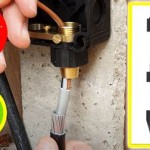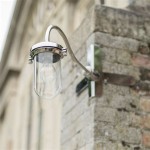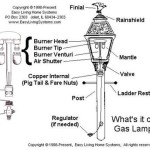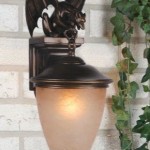Why Are My Outdoor Solar Lights Not Working?
Solar-powered outdoor lighting offers a cost-effective and environmentally friendly solution for illuminating your property. However, there are times when these seemingly self-sufficient lights may fail to function as expected. Understanding the common reasons why outdoor solar lights may not be working can help you troubleshoot the issue and get them shining again.
1. Insufficient Sunlight Exposure
Solar lights rely on sunlight to charge their internal batteries. If they are not receiving enough sunlight, the batteries will not be able to store sufficient energy to power the lights at night. This can occur due to several factors:
- Shade: Trees, buildings, or overgrown vegetation can cast shadows on the solar panel, significantly reducing the amount of sunlight it receives.
- Angle of the Panel: The solar panel needs to be positioned at an optimal angle to maximize sunlight absorption. If the panel is facing the wrong direction or is tilted incorrectly, it may not be able to capture enough sunlight.
- Season and Weather: The amount of sunlight available varies throughout the year and is affected by weather conditions. During winter months or cloudy days, the solar panel may not receive enough sunlight to fully charge the battery.
To remedy this, ensure the solar lights are placed in a location with direct and unobstructed sunlight for at least 6-8 hours daily. Consider adjusting the angle of the solar panel to optimize its exposure to the sun's rays. If necessary, trim back any obstructing vegetation or relocate the lights to a sunnier spot.
2. Battery Issues
Solar lights rely on rechargeable batteries to store the energy collected from the sun. Over time, these batteries can degrade or become faulty, resulting in poor performance or complete failure. If the batteries are not holding a charge or are unable to deliver sufficient power to the lights, the lights will not function.
- Battery Depletion: Extended periods of low sunlight exposure can lead to battery depletion. If the battery does not receive enough charge, it may not have sufficient energy to power the lights.
- Battery Degradation: Rechargeable batteries have a limited lifespan. Over time, they lose their capacity to store and deliver power. This can result in decreased light duration or complete failure.
- Battery Damage: Physical damage to the battery, such as exposure to moisture or extreme temperatures, can also lead to malfunction.
To address battery issues, first check the battery type and ensure it is compatible with the solar light. Consider replacing old or damaged batteries with new ones of the same type and capacity. If the issue persists, the battery may be faulty and require replacement.
3. Malfunctioning Components
Aside from battery issues, other components within the solar light system can malfunction, preventing the lights from working properly. These include:
- Solar Panel: Damage to the solar panel, such as cracks or scratches, can disrupt its ability to absorb and convert sunlight into energy.
- Wiring: Loose connections or damaged wiring within the solar light circuit can impede the flow of electricity, preventing the lights from turning on.
- Light Bulbs: Defective or burnt-out bulbs are a straightforward reason for non-functioning lights. Replacing the bulb with a new one can resolve the issue.
- Sensor: Some solar lights are equipped with a motion sensor or a dusk-to-dawn sensor that controls their operation. If the sensor is faulty or malfunctioning, the lights may not turn on at the appropriate time.
To diagnose component malfunctions, carefully inspect the solar panel for any visible damage. Check the wiring connections for looseness or signs of damage. Replace any burnt-out bulbs with new ones. If a sensor is present, test its functionality by manually covering the sensor to see if the lights respond. If any component appears damaged or malfunctioning, replacement may be necessary.
Troubleshooting your outdoor solar lights can be a simple process by systematically addressing these common issues. By ensuring adequate sunlight exposure, maintaining healthy batteries, and inspecting components for malfunction, you can keep your solar lights shining bright throughout the night.

Why Are My Solar Lights Not Working Panels Network

6 Reasons Why Solar Lights Come On During The Day Tips To Fix

Why Are My Solar Lights Not Working Just

Why Won T My Garden Solar Lights Work And What To Do About It

My Solar Lights Are Not Working After Rain Why What To Do

Why Won T My Garden Solar Lights Work And What To Do About It

Why Do My Solar Lights Come On During The Day Heisolar

Why Won T My Garden Solar Lights Work And What To Do About It
What Do I When Solar Lights Stop Working Quora

The Best Way To Repair Solar Path Lights True Lumens Sharper Designs Inc







